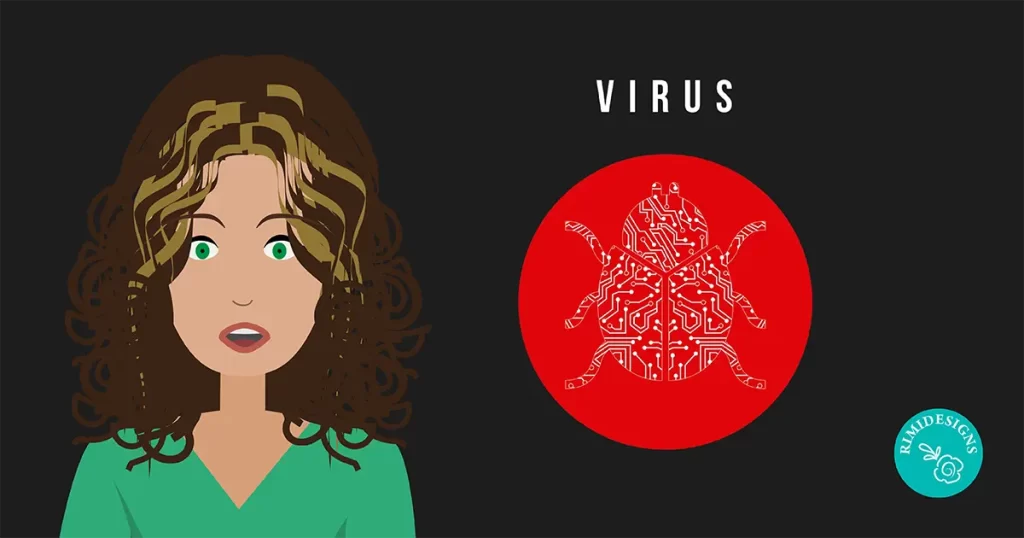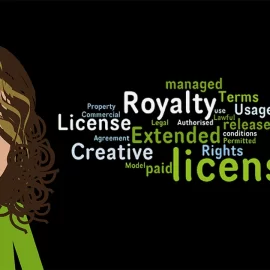
Are You Infected With Malware?
Picture this. You start your computer and wait. And wait. And wait some more… When your desktop finally shows its face, things don’t get any better. Your internet is sluggish, your programs are taking forever to load and your cursor is dragging 20 seconds behind your mouse. You might have tried to open too many programs at once. Or you might be infected!
Sometimes a malware infection is plain as day. Other times, it’s a silent killer. If you want to know whether or not your machine is sick, you first need to understand the symptoms. So let’s take a look at the telltale signs.
1. Blantant signs of infection
You’ve got ransomware
This one’s the most obvious. Ransomware authors want to make it perfectly clear that you have a malware infection — that’s how they make their money.
If you’ve got ransomware, you’ll get a pop-up that tells you your files have been encrypted and there’s a deadline to pay a ransom in order to get them back.
Browser redirects
You click on a link after doing a Google search and the link opens to a different page. You head back to your search results and try a different link. Same thing happens. Over and over you’re redirected to a different site from the one you’re trying to reach. That, my friend, is a malware infection.
Different homepage
Say you set your homepage to be your favourite sports news site. But for some reason, Yahoo.com keeps coming up.
You also notice some new toolbars (rows of selectable icons) below your browser window that you can’t get rid of. You could either have a major case of the forgets, or, more likely, you’ve got an infection.
Bombarded with pop-ups
We’re talking, you can’t escape! Close one, another one opens. Or you’re not even online and you’re getting pop-up messages on your system.
Some sites admittedly have terrible ad experiences that feel like something nefarious is going on (but really isn’t). But most of the time, if your screen is loaded with pop-ups, you’re looking at an adware or spyware infection.
2. Less obvous signs of infection
Computer running slow
Lots of things can contribute to a slow computer. You could be running too many programs at once, you may be running out of hard drive space or there’s not enough free memory.
If none of those are true for you and your computer is still slow, it’s possible you’re infected.
New, unfamiliar icons on desktop
Maybe your nephew Timmy jumped on without your knowledge and downloaded a photo-editing program so he could swap his face with his dog’s face and share it on social media. Or perhaps you downloaded a legitimate piece of software and a Potentially Unwanted Program (PUP) hitched a ride.
If it’s the latter, your computer could be weighed down by PUPs, which many security companies consider malware.
Constant crashing
There are a couple reasons why your applications or system might crash, including potential incompatibility between programs or software and hardware that needs updating.
However, some forms of malware, such as rootkits, dig deep into the Windows kernel and latch on, creating instability.
Web browser freezes or is unresponsive
Slow internet could be just that. Check your wifi signal or your download speeds with your internet provider to be sure.
But if everything checks out and your browser grinds to a halt, it could be a sign of infection.
Lots of bounced email
We’ve all mistakenly typed in the wrong email address and hit “send”. But if you’re getting a suspiciously high number of bounces or emails that return to your inbox undelivered, something else is going on.
First, your email address could have been hacked and is now being used to spam the crap out of your contacts list. Or malware could be the culprit. How? An infected computer sends out emails using the addresses it found in your computer. If the “To” address doesn’t work, the message bounces back to the “From” address, which is often yours.
3. Mobile infections
Battery life drains quickly
Oh yes, your mobile phone is not immune to malware. If you notice your battery life draining quickly, it could be that you’ve got some hefty programs open, such as games or music streaming services. It could also be that your battery is on its last leg.
Unfortunately, the third possibility is mobile malware.
Unusually large bill
This one’s pretty clear-cut. Pay close attention to your mobile phone bill. Are you being charged for messages you didn’t send? Is your data plan getting busted? Are you getting texts from your provider saying you owe money for something you didn’t purchase? Mobile malware is to blame.
You can protect against mobile threats using anti-malware software designed specifically for smartphones and tablets.
4. Stealth infections
No sign at all
Is your computer running like a smooth criminal? No issues whatsoever? You still might be infected. Many forms of malware, including botnets and others designed to steal your data, are nearly impossible to detect, unless you run a scan.
In fact, whether it’s plainly obviously or there’s no real sign of malware, you should be regularly scanning your computer with security anti-malware programs.
SOURCE: Malwarebytes Labs



